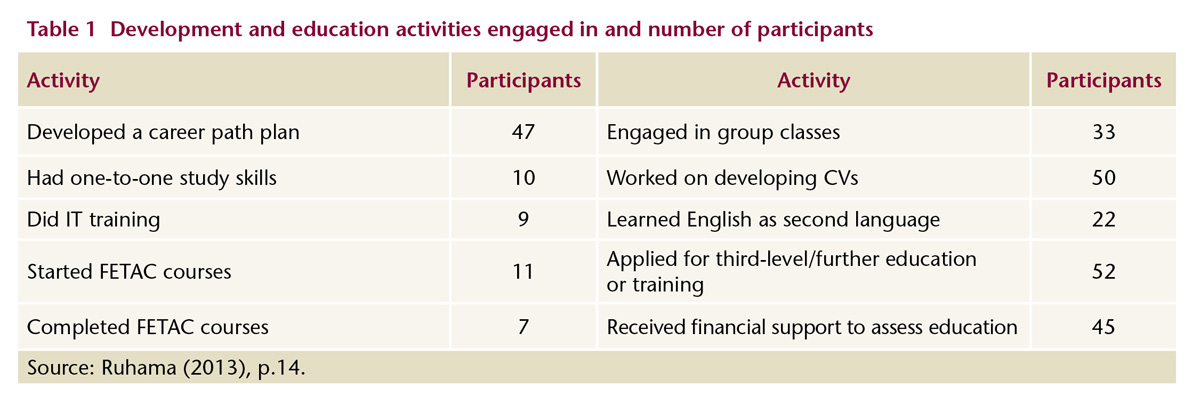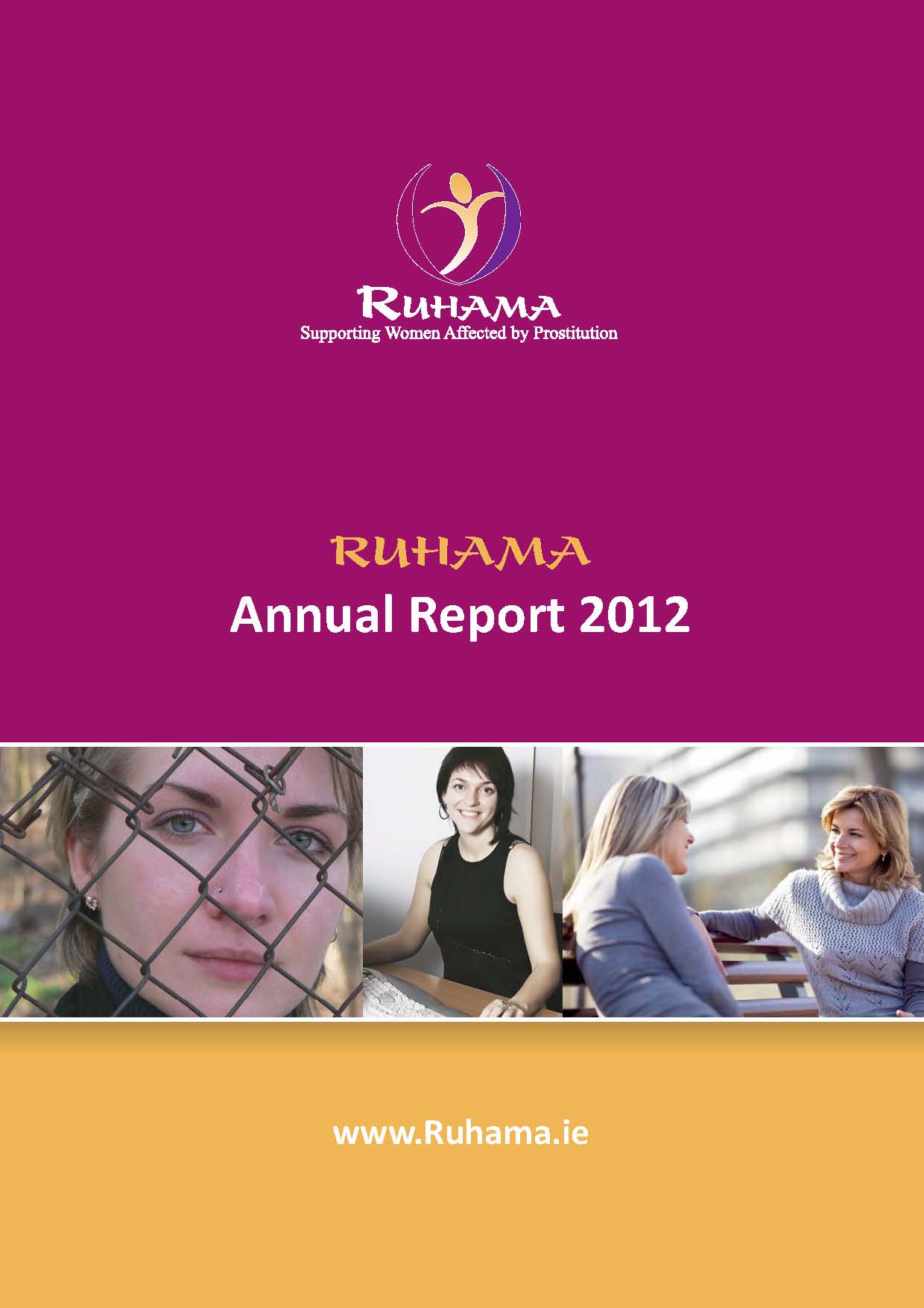Keane, Martin
(2014)
Ruhama annual report 2012.
Drugnet Ireland,
Issue 49, Spring 2014,
pp. 27-28.
Ruhama is a non-governmental organisation that works on a nationwide basis with women affected by prostitution. Ruhama provides support and assistance to women who are active in prostitution, have a history of prostitution, or are victims of sex trafficking. The latest annual report shows that the service worked with 258 women, of 32 different nationalities.1 This article briefly describes some the main programmes of work reported by Ruhama for 2012.
Street outreach service
The Ruhama street service of 30 outreach workers, including staff and volunteers, worked 108 nights during 2012 and supported 72 women, some on multiple occasions; 10 of the women also engaged with Ruhama ’s casework service. The outreach service uses a purposely adapted vehicle which is referred to as ‘the van’ by service users throughout the report. The report documents the issues that women involved in street prostitution present with, including addiction, debt, homelessness, poor health, suicidal ideation and violence. Ruhama is particularly conscious of the negative role that addiction plays in the lives of women engaged in prostitution. According to the report:
A majority of women involved in street prostitution who accessed Ruhama services via the Outreach Van in 2012 led chaotic lives due to their drug misuse. Ruhama has noted that this particular cohort of women may not access the full services offered, particularly those available in education and development. Ruhama has proactively engaged with low threshold drugs services to ascertain what kind of interaction with education best suits the client needs, and with this in mind is developing a number of once-off workshops that women could access without having to sign up for regular classes. (p.15)
Casework
In 2012, there were 170 women in casework; 45 were new cases in general casework and 18 were new cases in victims of trafficking casework. The other 107 women were in casework from before the start of 2012. Casework involves the woman working individually with a caseworker to identify goals and address pertinent issues and needs in a planned way; the woman may also receive emotional support through counselling. Women who are deeply traumatised are also offered psychotherapy and some may benefit from art therapy. It usually takes approximately two years for a woman affected by prostitution to work through a care plan.
Education and development
Providing education and development services is referred to as a cornerstone of Ruhama’s work. In 2012, 88 women engaged with Ruhama‘s education and development programme, an increase of 14% on the 2011 figure. Table 1 provides a detailed breakdown of the numbers of women and the activities they engaged with.

Additional services
Ruhama employs a specific worker to assist women to access suitable housing and accommodation; this service also assists women to access social welfare benefits and entitlements. In 2012, 33 women availed of Ruhama‘s resettlement support service. Assisting and supporting women to exit prostitution and to deal with the emotional and material experience of prostitution are key objectives of the organisation, as is its mission to support women to (re)gain their independence and eventually exit the services provided by Ruhama. The annual report shows that, in the course of 2012 Ruhama had been able to close the case files on 49 clients, meaning that the women had worked through their care plans and were no longer reliant on the services.
Conclusion
The annual report compiled by Ruhama and briefly described in this article is a useful insight into the nature and extent of work undertaken by the organisation with women affected by prostitution and human trafficking. However, work of this kind with such vulnerable and marginalised people can rarely be captured by reference to numbers and categories. In the words of the chairperson of Ruhama:
In this report we read many statistics, and behind each one is an individual woman’s story, a personal experience, where she has been trafficked, coerced or otherwise socialised into a life which she now wishes to leave, but where her escape may be threatened by danger, fear and absence of options. (p.3)

